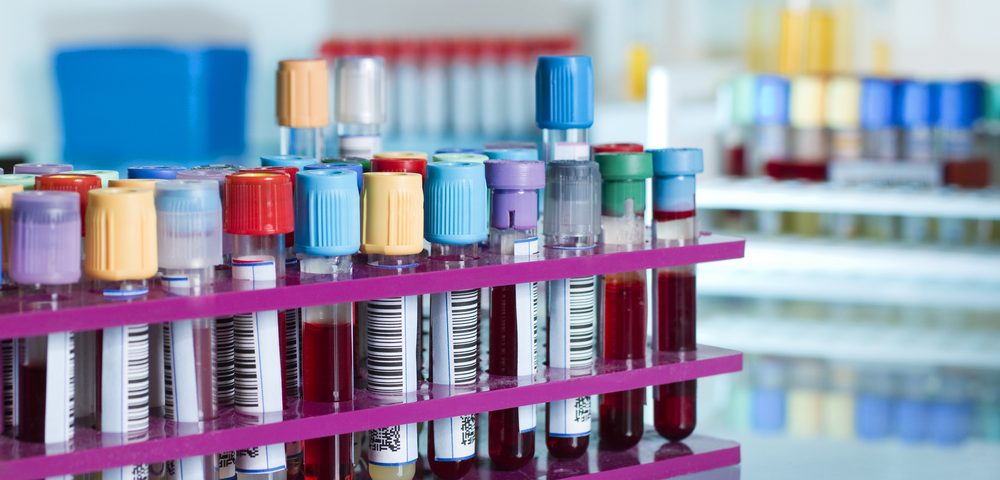Helpt u ons aan 500 donateurs?
13 oktober 2022: lees ook dit artikel: https://kanker-actueel.nl/bloedtest-mced-spoort-kanker-op-nog-voor-de-eerste-symptomen-optreden-en-geeft-97-procent-zekerheid-blijkt-uit-pathfinderstudie.html
13 februari 2018: Bron: persbericht ITUS Corporation
Een bloedtest uitgevoerd met hulp van AI - Kunstmatige Inteliigentie, kan vaste tumoren met een hoge mate van nauwkeurigheid ontdekken.
De test, flow cytometry genoemd, test witte bloedcellen uit beenmerg die een onderdrukkende eigenschap van het immuunsysteem hebben en daarbij wordt kunstmatige intelligentie (AI) gebruikt om de veranderingen in de witte bloedcellen van een patiënt te analyseren, die kunnen aangeven of een tumor aanwezig is. De nauwkeurigheid van 95 procent is uitermate hoog voor een bloedtest.
ITUS Corporation presenteerde de gegevens van een lopend onderzoek naar de test op het Clinical Immuno-Oncology Symposium, gehouden op 25 en 27 januari in San Francisco, aan de American Society of Clinical Oncology-Society for Immunotherapy of Cancer (ASCO-SITC).

Het bedrijf voerde een onderzoek uit naar bloedmonsters van 81 kankerpatiënten en 82 gezonde vrijwilligers om de nauwkeurigheid van de test te controleren. De kankerpatiënten hadden 20 verschillende solide tumoren, waaronder veel voorkomende vormen van kanker, zoals borstkanker, prostaatkanker of longkanker en zeldzame vormen van kanker, zoals botkanker of kanker van het bindweefsel.
De test ontdekte 89% van de Fase 1 tot Fase 4 stadium van kanker met slechts een fout percentage van 5%, aldus onderzoekers.
Dit is de tweede studie die gedaan is om de nauwkeurigheid van de test te analyseren. Gegevens uit de eerste studie, gepubliceerd in december 2016, vonden een nauwkeurigheid van 92% en een vals-positief percentage van 8%.
US zegt dat zijn technologie tumoren effectiever kan detecteren dan deskundige wetenschappers en artsen. Het bedrijf is van plan deze gegevens te publiceren en schat dat zodra de test wordt gebruikt, de prijs lager zal zijn dan $ 200.
Het abstract van de studie: The coupling of MDSCs with a computational analytic method to detect solid tumors staat onderaan dit artikel.
Voor het originele persbericht klik op deze link
New Test Accurately Detects Early-stage Solid Tumors Using Only Blood Samples
The coupling of MDSCs with a computational analytic method to detect solid tumors.
Background: Myeloid-derived suppressor cells (MDSCs) are key contributors in supporting tumor progression and tumor escape through their ability to suppress anti-tumor responses mediated through T cell and natural killer (NK) cell activity. Several studies have demonstrated their utility as indicators of tumor progression and possible predictors of clinical outcomes, but there is significant overlap with healthy individuals preventing discrete and accurate calls. The objective of our study was to create a non-invasive cancer detection assay that analyzes flow cytometry data in an objective method using an artificial neural network (NN) to distinguish between cancer patients (CPs) and healthy donors (HDs) based upon the flow cytometry profiles of MDSCs and other leukocytes. Methods: We used standard multiparametric flow cytometry techniques to immunophenotype MDSCs and other leukocytes found in the peripheral blood of 52 biopsy-confirmed CPs with solid tumors and 70 HDs. A series of NNs utilizing pattern recognition computational algorithms are then created using three data sets: 1) the training set - this ‘teaches’ the two output categories of cancer and not cancer, 2) the validation set – this uses backpropagation to improve the accuracy of the trained networks, and 3) the testing set – this is used to rank the trained networks against each other. Finally, a naïve testing set is then used to determine the overall sensitivity and specificity for the top-ranking networks. Results: Using traditional flow cytometry gating methods to analyze MDSCs as a biomarker for cancer detection, it is difficult to achieve both high sensitivity and specificity due to the substantial overlap with healthy individuals. Here, we incorporated a standard 12 marker flow cytometry assay with NN technology to achieve a sensitivity of 92.3% and a specificity of 90.0% with an area under the ROC curve (AUC) of 0.9477. Conclusions: Pairing the advanced analytical capabilities of our NN with surface biomarker based analysis of MDSCs and certain leukocytes measured in peripheral blood has enabled us the ability to objectively identify patterns indicative for the existence of a solid tumor.
Gerelateerde artikelen
- Bloedtest Oncoseek om vroegtijdig kanker op te sporen verkrijgbaar via Nederlands en Bulgaars platform tegen acceptabele prijs.
- Bloedtest (MCED) spoort kanker op nog voor de eerste symptomen optreden en geeft 97 procent zekerheid blijkt uit Pathfinderstudie
- Bloedtest op in bloed circulerende DNA mutaties voorspelt of immuuntherapie met checkpoint remmers / anti-PD medicijnen aan zullen slaan of niet. Meerdere DNA mutaties geven betere kansen op therapeutisch effect
- Bloedtest via witte bloedcellen (flow cytometry) ontdekt vroegtijdig kanker met solide tumoren met hulp van AI - arteficial Intelligence met een grote nauwkeurigheid van 95 procent
- Bloedtest geeft voor 96 procent nauwkeurige resultaten op wel of geen kanker en registreert zelfs al specifieke genmutaties verwant aan 7 verschillende vormen van kanker
- Bloedtest, uitgevoerd op in bloed circulerend DNA (ctDNA) op DNA mutaties afwijkingen, kan heel nauwkeurig nagenoeg alle vormen van kanker ontdekken.



Plaats een reactie ...
Reageer op "Bloedtest via witte bloedcellen (flow cytometry) ontdekt vroegtijdig kanker met solide tumoren met hulp van AI - arteficial Intelligence met een grote nauwkeurigheid van 95 procent"